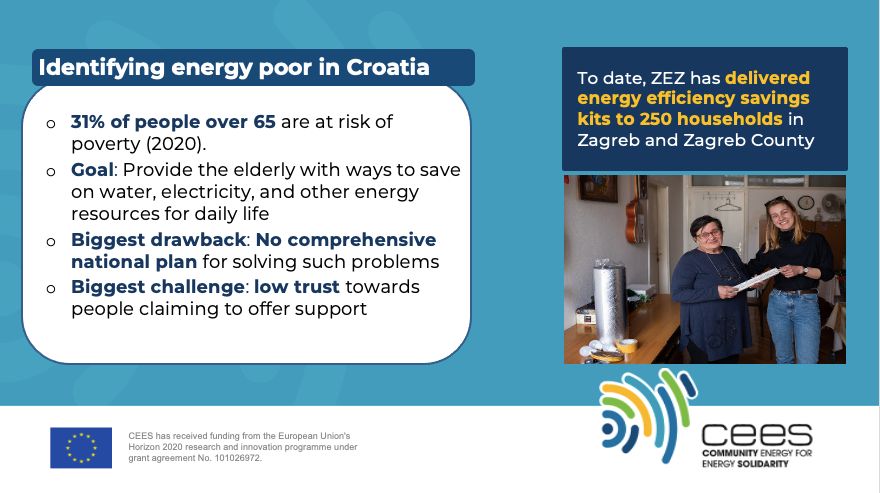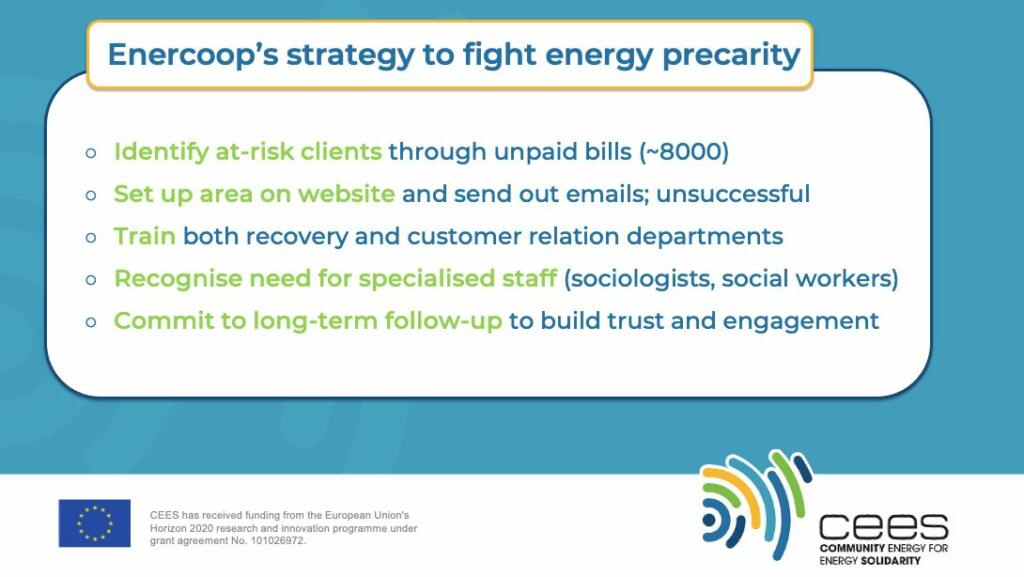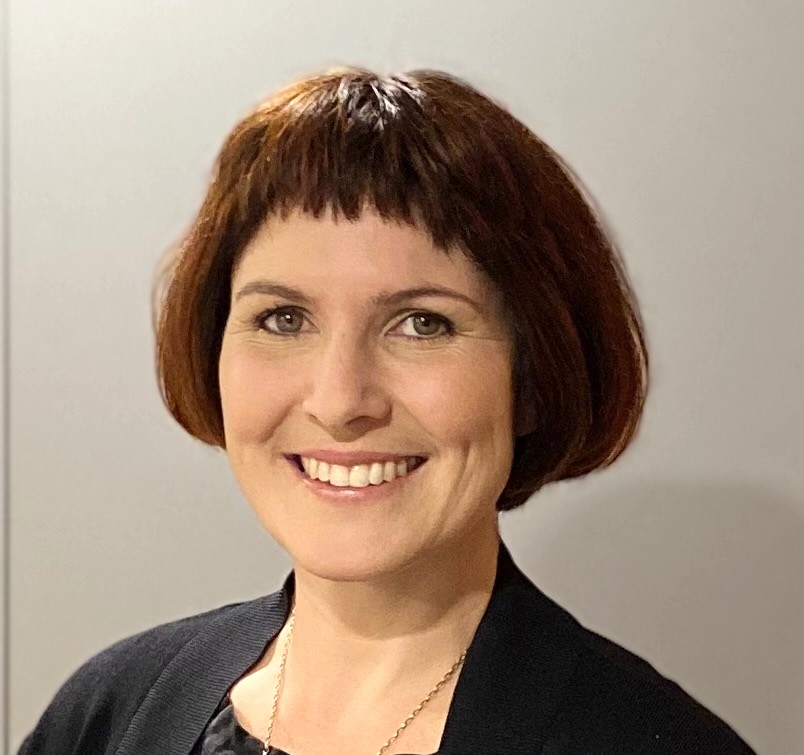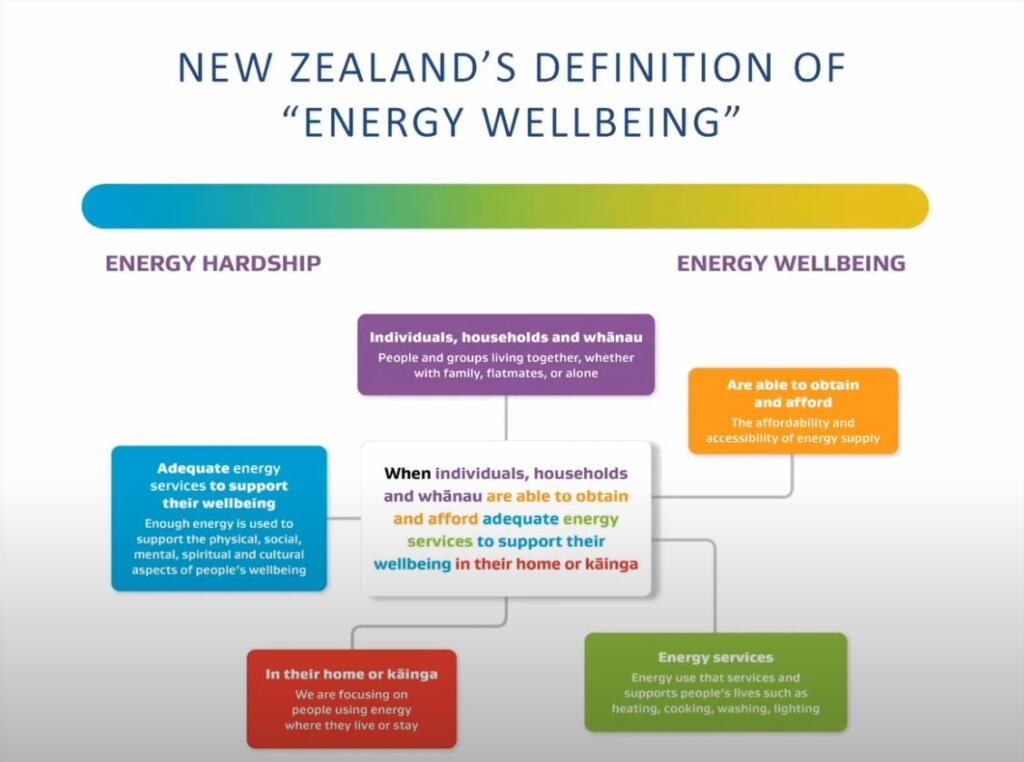Over the past year, CEES Partners incorporated new practices into their efforts to tackle energy poverty — taking inspiration from and building on each others’ experience. Truly ‘connecting’ with people in need was harder than anticipated.
A survey that CEES conducted in 2022 confirmed that a growing number of energy communities (ECs) are keen to help deliver a ‘just, clean energy transition’ by finding ways to ensure vulnerable households can access sufficient amounts of affordable energy to support health and well-being.
This webinar (the first in a series of four) focuses on the substantial challenge of identifying ‘who’ is in a situation of energy precarity and ‘how’ to engage in meaningful ways. CEES Partners offer tips on ways to engage with vulnerable people. the successes, challenges, surprises and adaptations they encountered or implemented along the way.
Use the link to access the full video , or keep reading for a short recap of presentations. The time at which each presentation starts is indicated as [XX:XX].
ZEZ (Green Energy Cooperative), [10:40]
First up, a presentation from ZEZ, the first EC launched in Croatia. New to becoming active in tackling energy poverty, ZEZ took inspiration from CEES partners Enercoop, Energie Solidaire and ALIenergy. To help elderly people enjoy greater thermal comfort in old homes and apartments in Zagreb and Zagreb county, they chose to pursue crowdfunding as a means to buy items to create and distribute ‘cozy kits’. As Paula Damaska explains, the crowdfunding was tremendously successful. Convincing people to accept the donated kits and a home visit proved much more challenging. Listen in for how ZEZ persisted…and eventually exceeded its objectives.

Enercoop [31:07]
In turn, Enercoop, a clean energy supplier in France, discusses the challenge of establishing a corporate culture in which both customer service and bill recovery teams are asked to truly engage with vulnerable customers. As Quentin Geraud explains, it was necessary to direct substantial resources to educating employees and developing new communications materials and mechanisms. Even so, a few months in, Enercoop could see that their initial approach lacked the kind of human interaction needed to gain trust and truly help.

Nina Campbell, energy justice policy advisory [01:02:30]

The webinar ends with a presentation from Nina Campbell, who helped the Government of New Zealand reframe its language, policies and actions. Keen to avoid negativity associated with the term ‘energy poverty’, the aim is now to move towards ensuring that ALL citizens are brought into a state of ‘energy well-being‘. As Nina points out, this requires considering a wider range of indicators and greater sensitivity to cultural aspects of specific communities.

Interested in re-posting these webinars to reach your own networks? Drop us a line: marilyn.smith [@] energysolidarity.eu